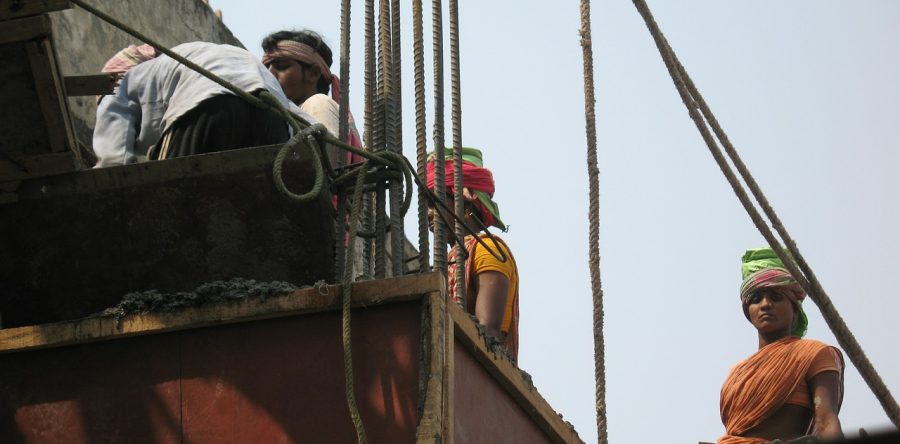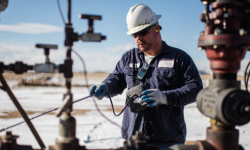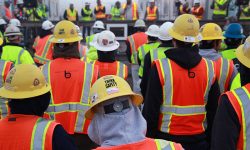CFMEU objections to worksite safety laws either don’t hold up or lack detail that we need as an industry by Ian Markos, The Advertiser. Available from <http://www.adelaidenow.com.au/news/opinion/ian-markos-the-construction-union-says-health-and-safety-officials-need-more-powers-to-stop-worker-deaths-on-sa-building-sites/news-story/d7eee4d79432bd5e753f7f5a05cbe441> [
TWO weeks ago the CFMEU called on members to march on Parliament House on Wednesday to end worksite deaths, claiming building site health and safety representatives needed more power to “stop deaths on SA building sites”.
But after clashing with the Senate Committee looking into new building laws two days ago, the CFMEU instead took aim at Senator Nick Xenophon and called on members to march to protest laws around the tendering for Commonwealth building projects. What was originally a protest about worker safety suddenly became a protest about job security.
Safety and jobs are two separate but vital issues that sit at the core of the building industry but the union’s attempt to bring the two together in protest fails at the first hurdle — their objections either don’t hold up, or lack detail that we can rally around as an industry.
The union originally argued health and safety representatives — worker representatives tasked by state legislation with highlighting on-the-ground safety issues and working with companies to improve on-site processes — needed more powers to “stop deaths on SA building sites”.
Yet when the State’s safety regulator, SafeWork SA, called for industry to consider whether changes were needed to these powers last November, the CFMEU didn’t outline what changes they thought were necessary.
At a time when the regulator was asking questions about the very topic that the CFMEU is protesting, the union said nothing, instead leaving it to its rival, the Australian Workers’ Union, to claim that the laws don’t deliver “efficient and practical outcomes”.
Instead we are left to guess.
Health and safety representatives connect all parties on busy construction sites.
The South Australian laws empower them to seek help from people on-site, from management and from approved consultants.
In contrast, the counterpart national laws allow representatives to call in anyone, regardless of whether they are on-site.
In other states, this power has been abused, used as a back door for union officials whose credentials to enter worksites have been revoked.
While the intention of the national laws is to allow health and safety representatives to call upon people with the necessary knowledge and experience, the abuse of those laws makes it difficult to support any extension.
For example, CFMEU officials this week told a Senate Committee they wouldn’t rule out breaking the law to protest new building laws.
The SA branch promised “Armageddon” when a company followed a legally-binding Court order.
And courts have repeatedly noted flagrant union breaches, triggering an estimated bill of $2 million in fines and legal costs. For those counting, that’s equivalent to the annual fees paid by more than 2600 members.
Claims that it is vital to adopt broader national powers for health and safety representatives to improve safety — it is unclear whether this is what the union is calling for — ignore a key player: SafeWork SA.
SafeWork SA inspectors receive training in hazard management, inspection procedures, and investigative techniques, applying them in the specialised field of building and construction.
That same education and knowledge is also now available to businesses in the form of an education arm of SafeWork SA — a key reform championed by Deputy Premier John Rau to help businesses improve their safety without fear of repercussions.
SafeWork SA are experts and independent.
Health and safety representatives are elected on-site as a communications channel.
Investing in SafeWork SA’s ability to get out to sites to work with industry will do more to prevent deaths than allowing unions to abuse a law meant for safety.
The second reason for today’s march revolves around a change in the Commonwealth’s Building Code 2016 which will see new laws relating to tenders and employment conditions begin in September rather than in two years.
The laws will support the building jobs South Australia needs. They will provide a level playing field for building companies bidding for Commonwealth projects and protect smaller businesses from union intimidation.
And taxpayers will benefit from a prohibition on union claims that effectively boost the cost of schools, hospitals and roads by up to 30 per cent.
It is a separate issue to that of safety, yet will dilute the focus on what should be the most important issue: workers’ lives.
Every person in the industry must take safety seriously. It is too important for industrial games.
South Australia needs more than that. South Australia deserves better than that.
CFMEU objections to worksite safety laws either don’t hold up or lack detail that we need as an industry by Ian Markos, The Advertiser. Available from <http://www.adelaidenow.com.au/news/opinion/ian-markos-the-construction-union-says-health-and-safety-officials-need-more-powers-to-stop-worker-deaths-on-sa-building-sites/news-story/d7eee4d79432bd5e753f7f5a05cbe441> [









